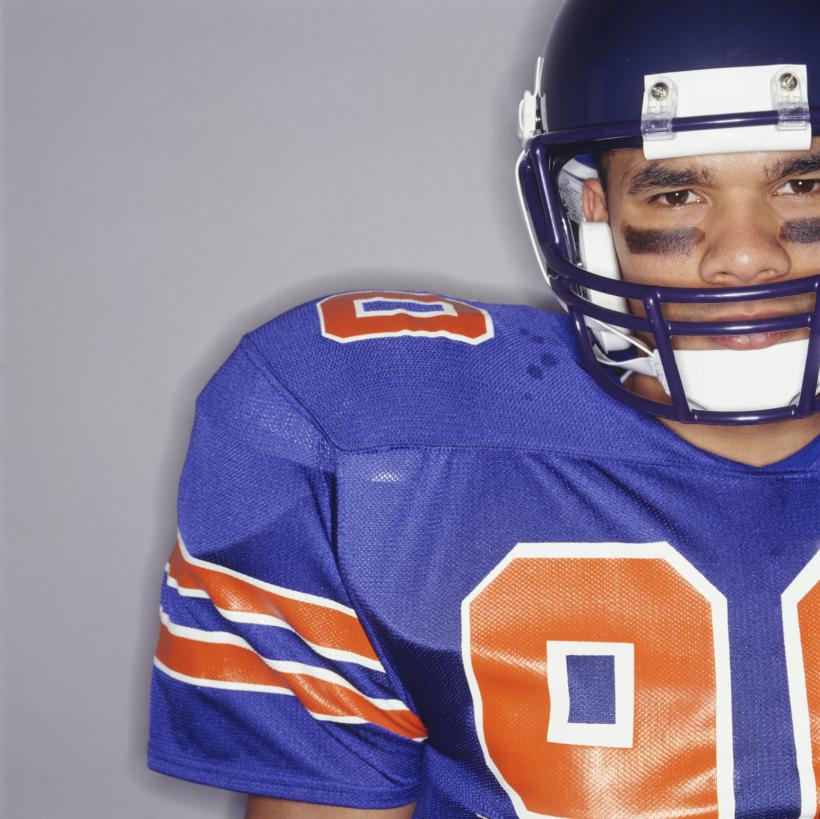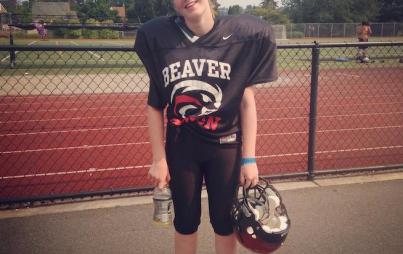
The life of a professional athlete seems undeniably alluring. Between the fame, prestige and hefty paycheck—on average, an NFL player can tackle their way to a minimum of a million a year—it's hard to turn the opportunity down.
In the wake of the NFL's recent lawsuits, however—which run the gamut from concealing concussions to supplying players with dangerous cocktails of painkillers—the gilded life is looking a less less shiny.
The NFL is still reeling from a pending $765 million settlement set in motion last year on behalf concussed players who were "encouraged" to keep playing without proper medical warnings. Why is it still underway, you ask? Because the federal judge doesn't think it's enough money to counter the potential damage that's been caused.
But wait, there's more. This past Tuesday, more than 600 players filed a class-action complaint in U.S. District Court in San Francisco with more disturbing accusations. The footballers have gone on record insisting that the league not only illegally supplied them with painkillers to conceal injuries and mask chronic pain, but that they often imbibed said drugs in illegal doses, and without proper prescriptions. Oh, and the dangers of these chummy cocktails were never really explained to these guys.
The Dark Underbelly of America's Favorite Sport
While your knee-jerk reaction could be, "These are grown-ass men that should be smart enough to make these decisions for themselves," the situation is complicated. Not only was the drug-taking systematically normalized across the league, but many of the players also explained they simply "trusted" their physicians to do right by them (imagine that!). Several players have also explained that they'd play through anything rather than risk losing their jobs. There's a bench chock full of up-and-comers hungry to take every player's place. More complicated still? Many of these men were plucked right out of high school and plunged into the NFL. Football represents their entire future—fiscally, emotionally, culturally and otherwise. Choosing not to play doesn't feel like a choice.
Plaintiff Jeremy Newberry—an NFL offensive lineman from 1999 to 2008—says he was receiving sometimes six injections per game including Toradol, which players describe as a “full-body numb-er” and “the current game-day drug of choice of the NFL.” He also describes the chilling blood spots on the buttocks of the players' pants—an all-too-telling sign they'd taken a pre-game injection.
Newberry's not the only one to be crying foul. Consider this gem about the league's disturbing practices:
It’s really like a cult. I’m going to say it. The NFL is a cult, because you’ve been looking at this motto and this logo for your whole life and you believe in it and you’re like, ‘They wouldn’t do anything to hurt me. They never would.’ And, uh oh, maybe they would. — Terry Crews, former NFL player, Sports Illustrated
So . . . Will Anything Change?
Honestly, the testimonies of these players read like disgusting pulp fiction—renal failure, liver transplants, chronic migraines, heart attacks, high blood pressure—but the question remains whether the NFL will simply shell out some dough as the proverbial poultice for all that ails America, or if it'll be forced to fundamentally shift how rigorous the game is.
How many men can we offer up on this altar for our amusement, sports drink endorsements and cold hard cash?






